Thursday 25 Nov 2021 at 2 pm
Leon and Thea Koerner University Centre, 6331 Crescent Road, UBC
Symposium: Signals and Apparatuses
-
Justine A. Chambers
ParticipantJustine A. Chambers is an artist and educator living and working on the unceded Coast Salish territories of the Squamish, Musqueam and Tsleil-Waututh Nations. Her movement-based practice considers how choreography can be an empathic practice rooted in collaborative creation, close observation, and the body as a site of a cumulative embodied archive. Privileging what is felt over what is seen, she works with dances “that are already there”–the social choreographies present in the everyday. Her choreographic projects have been presented at Libby Leshgold Gallery (Vancouver), Culture Days (Toronto), Contemporary Art Gallery (Vancouver), Helen and Morris Belkin Gallery (Vancouver), Sophiensaele (Berlin), Nanaimo Art Gallery, Artspeak (Vancouver), Hong Kong Arts Festival, Art Museum at the University of Toronto, Cantor Fitzgerald Gallery at Haverford College (Haverford, PA), Agora de la Danse (Montréal), Festival of New Dance (St. John’s), Mile Zero Dance Society (Edmonton), Dancing on the Edge (Vancouver), Canada Dance Festival (Ottawa), Dance in Vancouver, The Western Front, and the Vancouver Art Gallery. She is Max Tyler-Hite’s mother.
Read More
-
Andrea Damascelli
Principal Investigator -
James Day
CoordinatorJames Day is an experimental physicist and research associate with the Quantum Matter Institute. He completed his PhD from the University of Alberta in 2008, and spent his time there exploring the fundamental properties of quantum solid helium-4. He has been at UBC, in various capacities, ever since. His expertise is in low temperature physics, scanning tunneling microscopy, microwave spectroscopy and physics education. Roughly speaking, he studies how electrons behave in exotic materials, and how students behave in first-year physics labs. He loves science outreach, cares deeply about equitable learning and continually attempts to do better.
Read More
-
Denise Ferreira da Silva
ParticipantDenise Ferreira da Silva is an artist and Professor at UBC’s Social Justice Institute-GRSJ and Adjunct Professor at Monash University’s School of Art, Design and Architecture. She is the author of Toward a Global Idea of Race (University of Minnesota Press, 2007), A Dívida Impagavel (Oficina da Imaginaçāo Política and Living Commons, 2019), Unpayable Debt (Sternberg/MIT Press, 2022) and co-editor (with Paula Chakravartty) of Race, Empire, and the Crisis of the Subprime (Johns Hopkins University Press, 2013). Her artistic works include the films with Arjuna Neuman and the relational art practices Poethical Readings and Sensing Salon in collaboration with Valentina Desideri. She has exhibited and lectured at the Pompidou Center (Paris), Whitechapel Gallery (London), MASP (Sao Paulo), Guggenheim (New York) and MoMA (New York). She has written for publications from Liverpool Biennale, 2017; Sao Paulo Biennale, 2016, Venice Biennale, 2017, and Documenta 14 and published in journals such as Canadian Art, Frieze, Pass, Texte Zur Kunst and e-flux. She has held visiting professorships at major universities in Australia, Brazil, Britain, Denmark, Germany and the United States and is a member of the collective EhChO.org and an editor of Third Text.
Read More
-
Rhea Gaur
Participant -
Rysa Greenwood
Participant -
Alannah Hallas
Participant -
Jeremy Heyl
Principal Investigator -
Daniel Korchinski
Participant -
Josephine Lee
ParticipantJosephine Lee is a first-generation immigrant whose work is largely informed by a lifetime of movement across Canada and the United States. Lee’s interdisciplinary practice explores the psychic violence of cultural assimilation and nationalism. Her performances, installations, and sculptures shift between an intersectional analysis of this violence at the scale of a nation (where nuclear tests, land-seizures, and xenophobia exacerbate one another) and of the home (where the burdens of identity and generational trauma can be foundational and inescapable). Lee holds graduate and undergraduate degrees in science and fine arts. She has exhibited throughout Canada and the United States, as well as performed at documenta 14 in Kassel, Germany. Recently, Lee was awarded the Oscar Kolin Fellowship, the Vera G. List Sculpture Award, and a Gail and Stephen A. Jarislowsky Outstanding Artist Award at the BANFF Centre for Arts and Creativity. Lee currently resides within the stolen territory of the Coast Salish Peoples, including the territories of the xʷməθkwəy̓əm (Musqueam), Skwxwú7mesh (Squamish), and Səl̓ílwətaʔ/Selilwitulh (Tsleil-Waututh) Nations.
Read More
-
Khan Lee
ParticipantKhan Lee was born in Seoul, Korea. He studied architecture at Hong-Ik University, before immigrating to Canada to study fine art at Emily Carr Institute of Art and Design. He works in performance, media, sculpture and drawing. His practice involves experimentation with form and process in order to express inherent relationships between material and immaterial content. He is a founding member of the Vancouver-based artist collective ‘Intermission’ and is presently a member of ‘Instant Coffee’ artist collective. His work has been exhibited nationally, and internationally. Lee lives and works in Vancouver, BC.
Read More
-
Nadia Lichtig
ParticipantNadia Lichtig is an artist currently living in the South of France. In her multilayered work, voice is transposed into various media including painting, print, sculpture, photography, performance, soundscape and song—each medium approached not as a field to be mastered, but as a source of possibilities to question our ability to decipher the present. Visual and aural aspects entangle in her performances. Lichtig studied linguistics at the LMU Munich in Germany and at the Ecole des Beaux-Arts de Paris, France with Jean-Luc Vilmouth, where she graduated with honours in 2001, before assisting Mike Kelley in Los Angeles the same year. She taught at the Shrishti School of Art and Technology, Bangalore, India as a visiting professor in 2006, at the Ecole des Beaux-Arts of Valence in 2007 and is professor of Fine Arts at the Ecole Supérieure des Beaux-arts of Montpellier (MOCO-ESBA), France since 2009. She has collaborated with musicians who are also visual artists, such as Bertrand Georges (Audible), Christian Bouyjou (Popopfalse), Nicolu (La Chatte), Nina Canal (Ut) and Michael Moorley (The dead C). Lichtig worked and works under several group names and pseudonyms (until 2009: EchoparK, Falseparklocation, Skrietch, Ghosttrap and Nanana).
Read More
-
Kelly Lycan
ParticipantKelly Lycan is a photo-based installation artist who resides in Vancouver, BC, Canada on the traditional and unceded territories of the Sḵwx̱wú7mesh (Squamish), səl’ilwətaɁɬ (Tsleil Waututh) and xʷməθkʷəy̓əm (Musqueam) Nations. Lycan’s work investigates the way objects and images are placed and displayed in the world and the cycle of value they experience. She employs photography and sculpture in order to engage them beyond medium specificity. Lycan received a Bachelor of Fine Arts from Nova Scotia College of Art and Design and a Master of Fine Arts from the University of California, Santa Barbara, and Los Angeles. Her work has been exhibited across Canada, the US, Europe, and the Middle East, including solo exhibitions at Ag Galerie, Tehran, Iran (2018); Burrard Art Foundation, Vancouver (2016); Susan Hobbs Gallery, Toronto (2015-16); Presentation House Gallery, North Vancouver (2014); SFU Gallery, Burnaby (2014); Or Gallery, Vancouver (2011); and Gallery TPW, Toronto (2009). Lycan also collaborated from 2005-2015 with the artist collective Instant Coffee, a service-oriented artist collective that have exhibited widely.
Read More
-
Kirk Madison
Participant -
Susana Mendez Alcala
Coordinator -
Sarah Morris
Participant -
Marcus Prasad
CoordinatorMarcus Prasad is an art historian residing on the unceded territories of the Musqueam, Squamish and Tsleil-Waututh peoples. He has earned his MA (2020) and BA Honours (2018) in Art History and Theory from the University of British Columbia, with a research focus on spatial theory, temporality, and queer theory as they relate to American contemporary horror film and postwar art. His work has been funded by the Social Sciences and Humanities Research Council of Canada, and he has been the recipient of the Patsy and David Heffel Award in Art History, the Ian Wallace Award in Art History, and the University of Toronto Master Essay Prize. Prasad is Editorial Director at SAD Magazine, an arts and culture print publication seeking to feature emerging artists and writers, and has served as Secretary on the Board of Directors at Richmond Art Gallery (2015-2020) and Access Gallery (2019-present). His work has appeared in Wreck, Cinephile, and CineAction, and his research presented at McGill University, The University of Victoria, Ontario College of Art and Design, and Carleton University.
Read More
-
Luke Reynolds
Participant -
Shelly Rosenblum
Principal InvestigatorShelly Rosenblum is Curator of Academic Programs at the Belkin. Inaugurating this position at the Belkin, Rosenblum’s role is to develop programs that increase myriad forms of civic and academic engagement at UBC, the wider Vancouver community and beyond. Rosenblum received her PhD at Brown University and has taught at Brown, Wesleyan and UBC. Her awards include fellowships from the Center for the Humanities, Wesleyan University and a multi-year Presidential Postdoctoral Research Fellowship, Department of English, UBC. She was selected for the Summer Leadership Institute of the Association of Academic Museums and Galleries at the Kellogg School of Management, Northwestern University (2014). Her research interests include issues in contemporary art and museum theory, discourses of the Black Atlantic, critical theory, narrative and performativity. Her teaching covers the 17th to the 21st centuries. She remains active in professional associations related to academic museums and cultural studies, attending international conferences and workshops, and recently completing two terms (six years) on the Board of Directors at the Western Front, Vancouver, including serving as Board President. At UBC, Rosenblum is an Affiliate of the Peter Wall Institute for Advanced Studies.
Read More
-
Emily Wight
Coordinator
Beginning in May 2021, the Ars Scientia research cluster connected artists with physicists in a collaborative residency program to discuss and explore the intersections between the disciplines of art and science. On Thursday, 25 November 2021, the groups convened at a research symposium, Signals and Apparatuses, to share their experiences in the residency and engage in an interdisciplinary discussion with the academic community at UBC. Denise Ferreira da Silva offered opening remarks, which were followed by a discussion with Drift exhibition artist Nadia Lichtig and graduate student Rhea Gaur, alongside presentations from Ars Scientia collaborators.
A performance with artist Nadia Lichtig and the UBC School of Music took place at the Belkin the day prior to the symposium on Wednesday, 24 November 2021 at 5 pm.
Ars Scientia is funded by UBC’s Research Excellence Cluster program to create programming that fuses the praxes of art and science in the emergent fields of interdisciplinary research, and will continue to do so over the next two years. The artist and physicist residencies were a primary component of this programming, which partnered artists Justine A. Chambers, Josephine Lee, Khan Lee and Kelly Lycan with physicists Rysa Greenwood, Alannah Hallas, Daniel Korchinski, Kirk Madison, Sarah Morris and Luke Reynolds.
This early programming of Ars Scientia complemented Drift: Art and Dark Matter at the Belkin, a residency and exhibition project curated by Sunny Kerr and generated by Agnes Etherington Art Centre, the Arthur B. McDonald Canadian Astroparticle Physics Research Institute and SNOLAB. As part of Drift, artists Nadia Lichtig, Josèfa Ntjam, Anne Riley and Jol Thoms reflected on the “how” and “why” of physics and art as diverse and interrelating practices of knowledge.
Image (Above): Khan Lee, 3=2+1, 2017, from Leaning out of Windows Residency, Emily Carr University of Art + Design and TRIUMF. Courtesy of the artist
-
Justine A. Chambers
ParticipantJustine A. Chambers is an artist and educator living and working on the unceded Coast Salish territories of the Squamish, Musqueam and Tsleil-Waututh Nations. Her movement-based practice considers how choreography can be an empathic practice rooted in collaborative creation, close observation, and the body as a site of a cumulative embodied archive. Privileging what is felt over what is seen, she works with dances “that are already there”–the social choreographies present in the everyday. Her choreographic projects have been presented at Libby Leshgold Gallery (Vancouver), Culture Days (Toronto), Contemporary Art Gallery (Vancouver), Helen and Morris Belkin Gallery (Vancouver), Sophiensaele (Berlin), Nanaimo Art Gallery, Artspeak (Vancouver), Hong Kong Arts Festival, Art Museum at the University of Toronto, Cantor Fitzgerald Gallery at Haverford College (Haverford, PA), Agora de la Danse (Montréal), Festival of New Dance (St. John’s), Mile Zero Dance Society (Edmonton), Dancing on the Edge (Vancouver), Canada Dance Festival (Ottawa), Dance in Vancouver, The Western Front, and the Vancouver Art Gallery. She is Max Tyler-Hite’s mother.
Read More
-
Andrea Damascelli
Principal Investigator -
James Day
CoordinatorJames Day is an experimental physicist and research associate with the Quantum Matter Institute. He completed his PhD from the University of Alberta in 2008, and spent his time there exploring the fundamental properties of quantum solid helium-4. He has been at UBC, in various capacities, ever since. His expertise is in low temperature physics, scanning tunneling microscopy, microwave spectroscopy and physics education. Roughly speaking, he studies how electrons behave in exotic materials, and how students behave in first-year physics labs. He loves science outreach, cares deeply about equitable learning and continually attempts to do better.
Read More
-
Denise Ferreira da Silva
ParticipantDenise Ferreira da Silva is an artist and Professor at UBC’s Social Justice Institute-GRSJ and Adjunct Professor at Monash University’s School of Art, Design and Architecture. She is the author of Toward a Global Idea of Race (University of Minnesota Press, 2007), A Dívida Impagavel (Oficina da Imaginaçāo Política and Living Commons, 2019), Unpayable Debt (Sternberg/MIT Press, 2022) and co-editor (with Paula Chakravartty) of Race, Empire, and the Crisis of the Subprime (Johns Hopkins University Press, 2013). Her artistic works include the films with Arjuna Neuman and the relational art practices Poethical Readings and Sensing Salon in collaboration with Valentina Desideri. She has exhibited and lectured at the Pompidou Center (Paris), Whitechapel Gallery (London), MASP (Sao Paulo), Guggenheim (New York) and MoMA (New York). She has written for publications from Liverpool Biennale, 2017; Sao Paulo Biennale, 2016, Venice Biennale, 2017, and Documenta 14 and published in journals such as Canadian Art, Frieze, Pass, Texte Zur Kunst and e-flux. She has held visiting professorships at major universities in Australia, Brazil, Britain, Denmark, Germany and the United States and is a member of the collective EhChO.org and an editor of Third Text.
Read More
-
Rhea Gaur
Participant -
Rysa Greenwood
Participant -
Alannah Hallas
Participant -
Jeremy Heyl
Principal Investigator -
Daniel Korchinski
Participant -
Josephine Lee
ParticipantJosephine Lee is a first-generation immigrant whose work is largely informed by a lifetime of movement across Canada and the United States. Lee’s interdisciplinary practice explores the psychic violence of cultural assimilation and nationalism. Her performances, installations, and sculptures shift between an intersectional analysis of this violence at the scale of a nation (where nuclear tests, land-seizures, and xenophobia exacerbate one another) and of the home (where the burdens of identity and generational trauma can be foundational and inescapable). Lee holds graduate and undergraduate degrees in science and fine arts. She has exhibited throughout Canada and the United States, as well as performed at documenta 14 in Kassel, Germany. Recently, Lee was awarded the Oscar Kolin Fellowship, the Vera G. List Sculpture Award, and a Gail and Stephen A. Jarislowsky Outstanding Artist Award at the BANFF Centre for Arts and Creativity. Lee currently resides within the stolen territory of the Coast Salish Peoples, including the territories of the xʷməθkwəy̓əm (Musqueam), Skwxwú7mesh (Squamish), and Səl̓ílwətaʔ/Selilwitulh (Tsleil-Waututh) Nations.
Read More
-
Khan Lee
ParticipantKhan Lee was born in Seoul, Korea. He studied architecture at Hong-Ik University, before immigrating to Canada to study fine art at Emily Carr Institute of Art and Design. He works in performance, media, sculpture and drawing. His practice involves experimentation with form and process in order to express inherent relationships between material and immaterial content. He is a founding member of the Vancouver-based artist collective ‘Intermission’ and is presently a member of ‘Instant Coffee’ artist collective. His work has been exhibited nationally, and internationally. Lee lives and works in Vancouver, BC.
Read More
-
Nadia Lichtig
ParticipantNadia Lichtig is an artist currently living in the South of France. In her multilayered work, voice is transposed into various media including painting, print, sculpture, photography, performance, soundscape and song—each medium approached not as a field to be mastered, but as a source of possibilities to question our ability to decipher the present. Visual and aural aspects entangle in her performances. Lichtig studied linguistics at the LMU Munich in Germany and at the Ecole des Beaux-Arts de Paris, France with Jean-Luc Vilmouth, where she graduated with honours in 2001, before assisting Mike Kelley in Los Angeles the same year. She taught at the Shrishti School of Art and Technology, Bangalore, India as a visiting professor in 2006, at the Ecole des Beaux-Arts of Valence in 2007 and is professor of Fine Arts at the Ecole Supérieure des Beaux-arts of Montpellier (MOCO-ESBA), France since 2009. She has collaborated with musicians who are also visual artists, such as Bertrand Georges (Audible), Christian Bouyjou (Popopfalse), Nicolu (La Chatte), Nina Canal (Ut) and Michael Moorley (The dead C). Lichtig worked and works under several group names and pseudonyms (until 2009: EchoparK, Falseparklocation, Skrietch, Ghosttrap and Nanana).
Read More
-
Kelly Lycan
ParticipantKelly Lycan is a photo-based installation artist who resides in Vancouver, BC, Canada on the traditional and unceded territories of the Sḵwx̱wú7mesh (Squamish), səl’ilwətaɁɬ (Tsleil Waututh) and xʷməθkʷəy̓əm (Musqueam) Nations. Lycan’s work investigates the way objects and images are placed and displayed in the world and the cycle of value they experience. She employs photography and sculpture in order to engage them beyond medium specificity. Lycan received a Bachelor of Fine Arts from Nova Scotia College of Art and Design and a Master of Fine Arts from the University of California, Santa Barbara, and Los Angeles. Her work has been exhibited across Canada, the US, Europe, and the Middle East, including solo exhibitions at Ag Galerie, Tehran, Iran (2018); Burrard Art Foundation, Vancouver (2016); Susan Hobbs Gallery, Toronto (2015-16); Presentation House Gallery, North Vancouver (2014); SFU Gallery, Burnaby (2014); Or Gallery, Vancouver (2011); and Gallery TPW, Toronto (2009). Lycan also collaborated from 2005-2015 with the artist collective Instant Coffee, a service-oriented artist collective that have exhibited widely.
Read More
-
Kirk Madison
Participant -
Susana Mendez Alcala
Coordinator -
Sarah Morris
Participant -
Marcus Prasad
CoordinatorMarcus Prasad is an art historian residing on the unceded territories of the Musqueam, Squamish and Tsleil-Waututh peoples. He has earned his MA (2020) and BA Honours (2018) in Art History and Theory from the University of British Columbia, with a research focus on spatial theory, temporality, and queer theory as they relate to American contemporary horror film and postwar art. His work has been funded by the Social Sciences and Humanities Research Council of Canada, and he has been the recipient of the Patsy and David Heffel Award in Art History, the Ian Wallace Award in Art History, and the University of Toronto Master Essay Prize. Prasad is Editorial Director at SAD Magazine, an arts and culture print publication seeking to feature emerging artists and writers, and has served as Secretary on the Board of Directors at Richmond Art Gallery (2015-2020) and Access Gallery (2019-present). His work has appeared in Wreck, Cinephile, and CineAction, and his research presented at McGill University, The University of Victoria, Ontario College of Art and Design, and Carleton University.
Read More
-
Luke Reynolds
Participant -
Shelly Rosenblum
Principal InvestigatorShelly Rosenblum is Curator of Academic Programs at the Belkin. Inaugurating this position at the Belkin, Rosenblum’s role is to develop programs that increase myriad forms of civic and academic engagement at UBC, the wider Vancouver community and beyond. Rosenblum received her PhD at Brown University and has taught at Brown, Wesleyan and UBC. Her awards include fellowships from the Center for the Humanities, Wesleyan University and a multi-year Presidential Postdoctoral Research Fellowship, Department of English, UBC. She was selected for the Summer Leadership Institute of the Association of Academic Museums and Galleries at the Kellogg School of Management, Northwestern University (2014). Her research interests include issues in contemporary art and museum theory, discourses of the Black Atlantic, critical theory, narrative and performativity. Her teaching covers the 17th to the 21st centuries. She remains active in professional associations related to academic museums and cultural studies, attending international conferences and workshops, and recently completing two terms (six years) on the Board of Directors at the Western Front, Vancouver, including serving as Board President. At UBC, Rosenblum is an Affiliate of the Peter Wall Institute for Advanced Studies.
Read More
-
Emily Wight
Coordinator
Related
-
Research Project
2021 - Ongoing
Ars Scientia: Merging Artistic Practice with Scientific Research
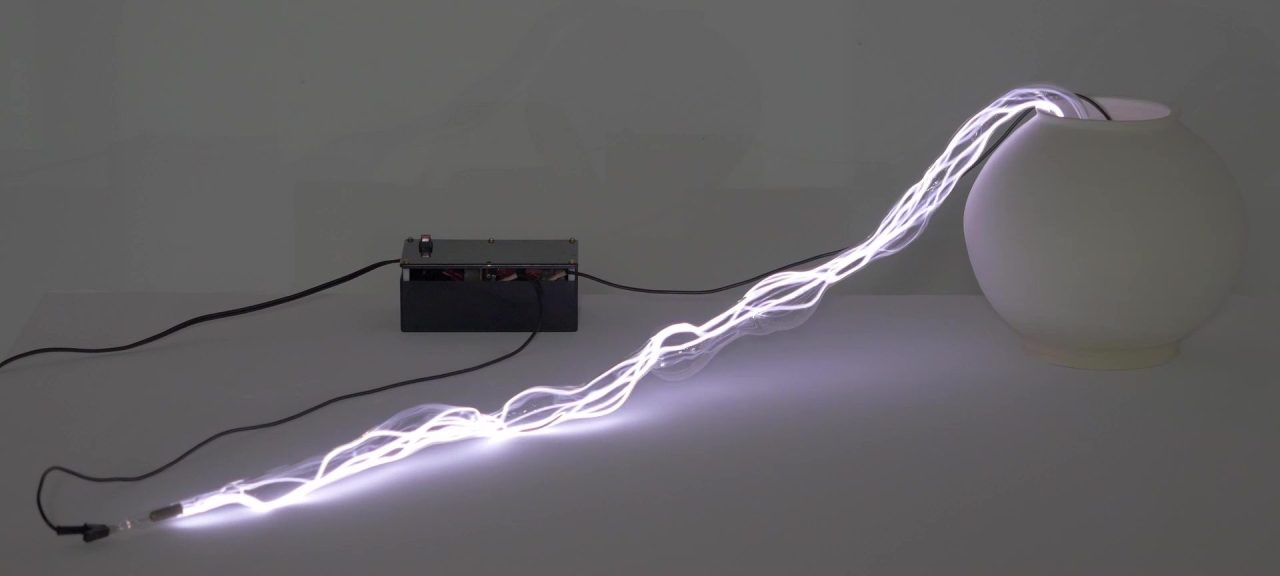
The long search for dark matter has put the spotlight on the limitations of human knowledge and technological capability. Confronted with the shortcomings of our established modes of detecting, diagnosing and testing, the search beckons the creation of new ways of learning and knowing. Fusing the praxes of arts and science in the emergent fields of interdisciplinary research, Ars Scientia, a tripartite partnership between UBC's Stewart Blusson Quantum Matter Institute (Blusson QMI), the Department of Physics and Astronomy and the Belkin, presents an opportunity to foster new modes of knowledge exchange across the arts, sciences and their pedagogies. Funded by UBC’s Research Excellence Cluster program, Ars Scientia will conduct rich programming and research to address this line of inquiry over the next two years beginning in 2021.
[more] -
Exhibition
10 Sep – 05 Dec 2021
Drift: Art and Dark Matter
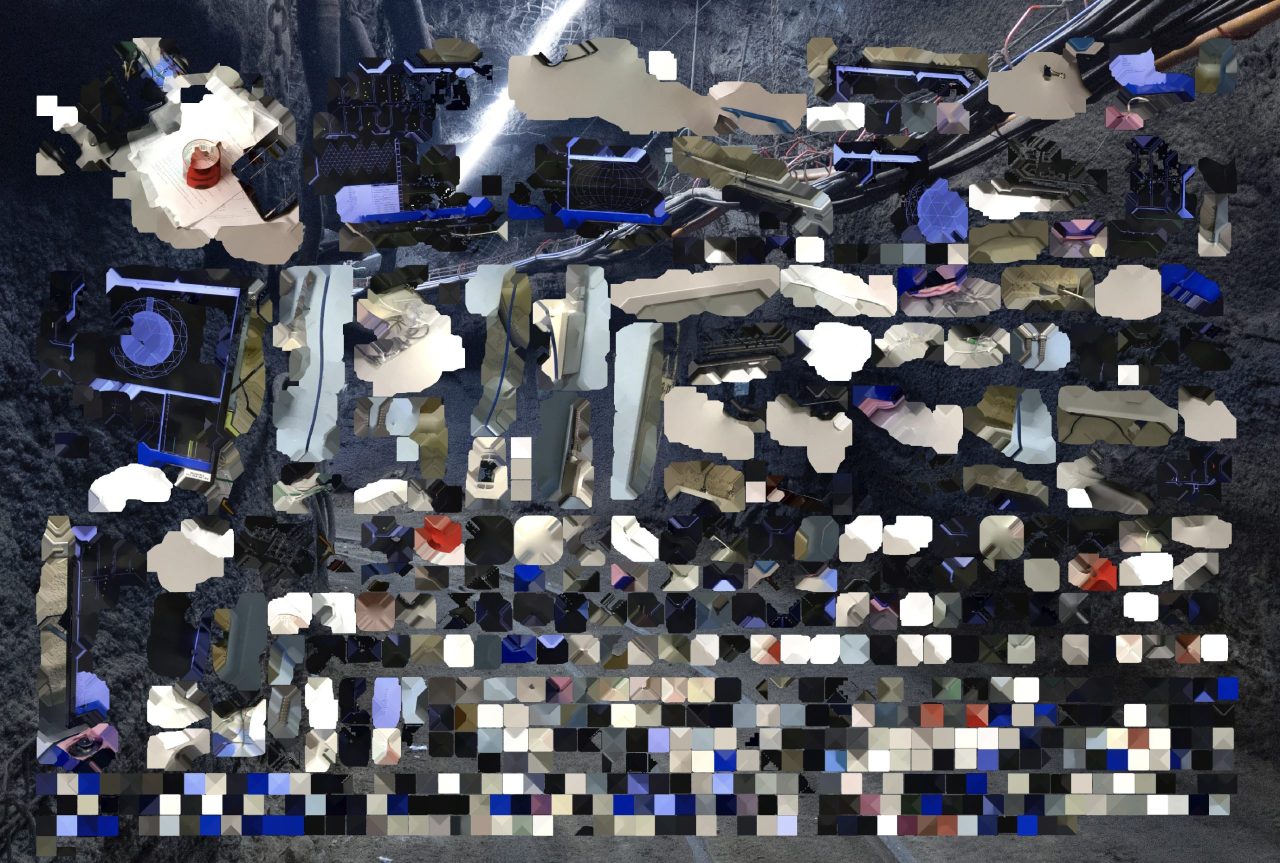
Drift: Art and Dark Matter is a residency and exhibition project generated by Agnes Etherington Art Centre, the Arthur B. McDonald Canadian Astroparticle Physics Research Institute and SNOLAB. Four artists of national and international stature were invited to make new work while engaging with physicists, chemists and engineers contributing to the search for dark matter at SNOLAB’s facility in Sudbury, two kilometres below the surface of the Earth.
[more] -
News
14 Sep 2021
Drift: Reading Room
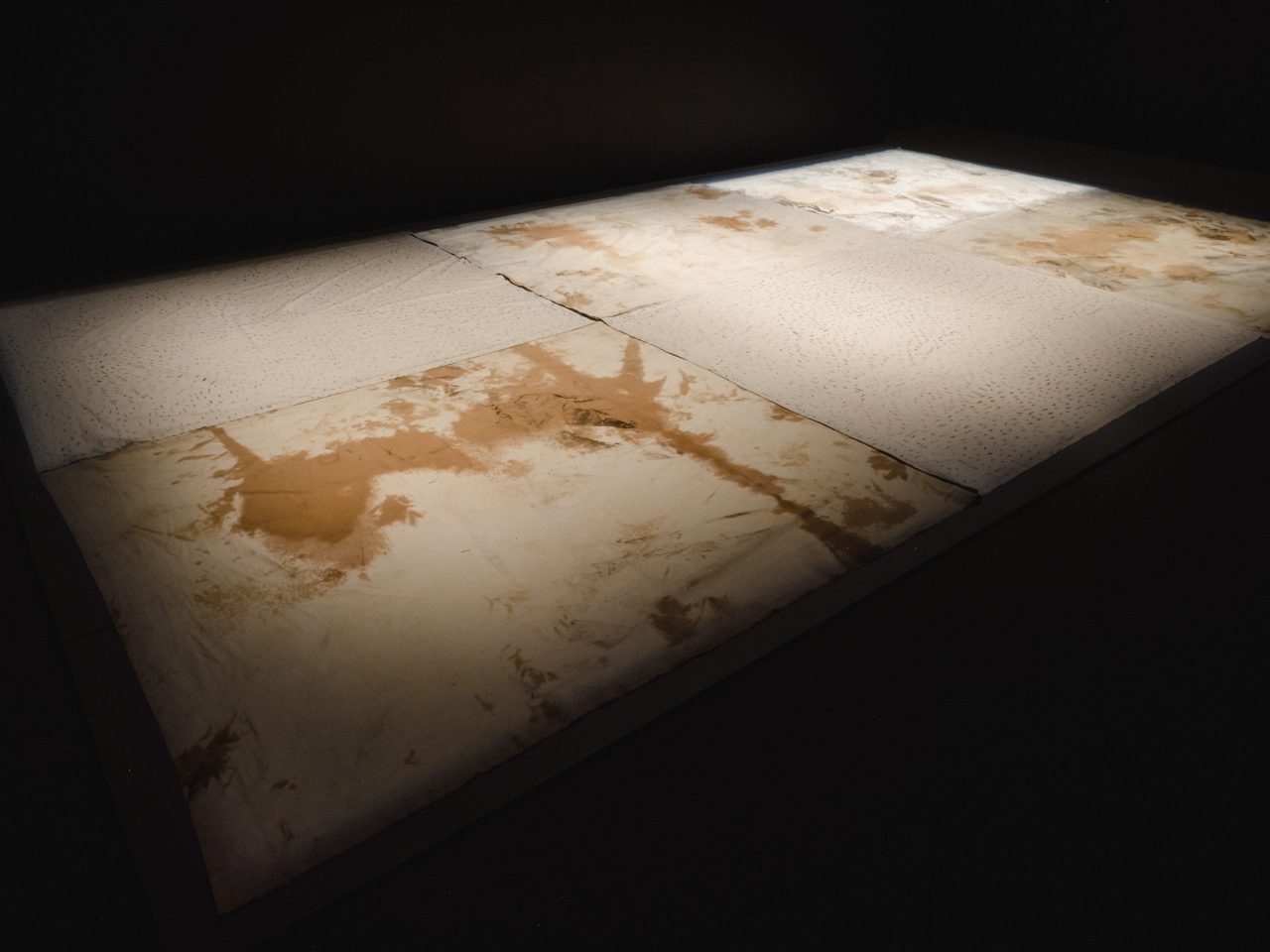
Resources related to the artists in Drift: Art and Dark Matter. This list is not exhaustive, but rather comprised of suggested readings compiled by researchers at the Belkin. These readings are intended to provide additional context for the exhibition and act as springboards for further research or questions stemming from the exhibition, artists and works involved.
[more] -
Event
Thursday 9 Sep 2021, 6 pm
Drift: Opening with Denise Ferreira da Silva and Jol Thoms
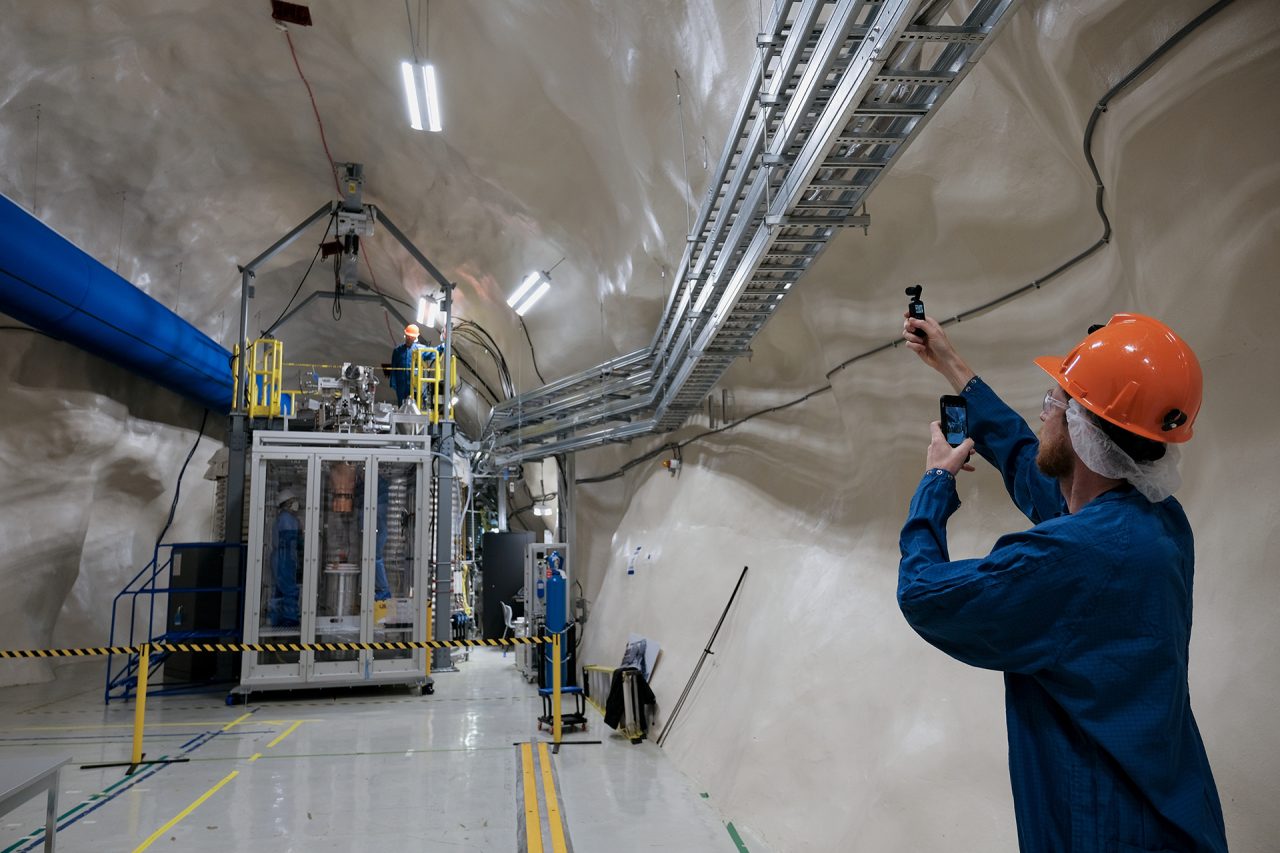
Please join us for the opening of Drift: Art and Dark Matter with a performance-conversation by artists Denise Ferreira da Silva and Jol Thoms. Ferreira da Silva and Thoms will touch on intersections between Soot Breath / Corpus Infinitum (2020) and n-Land (2021), both of which will play throughout the evening on the Belkin Screen.
[more] -
Event
24 Sep–5 Nov 2021
Artist Talks: Khan Lee, Kelly Lycan, Justine A. Chambers, Josephine Lee
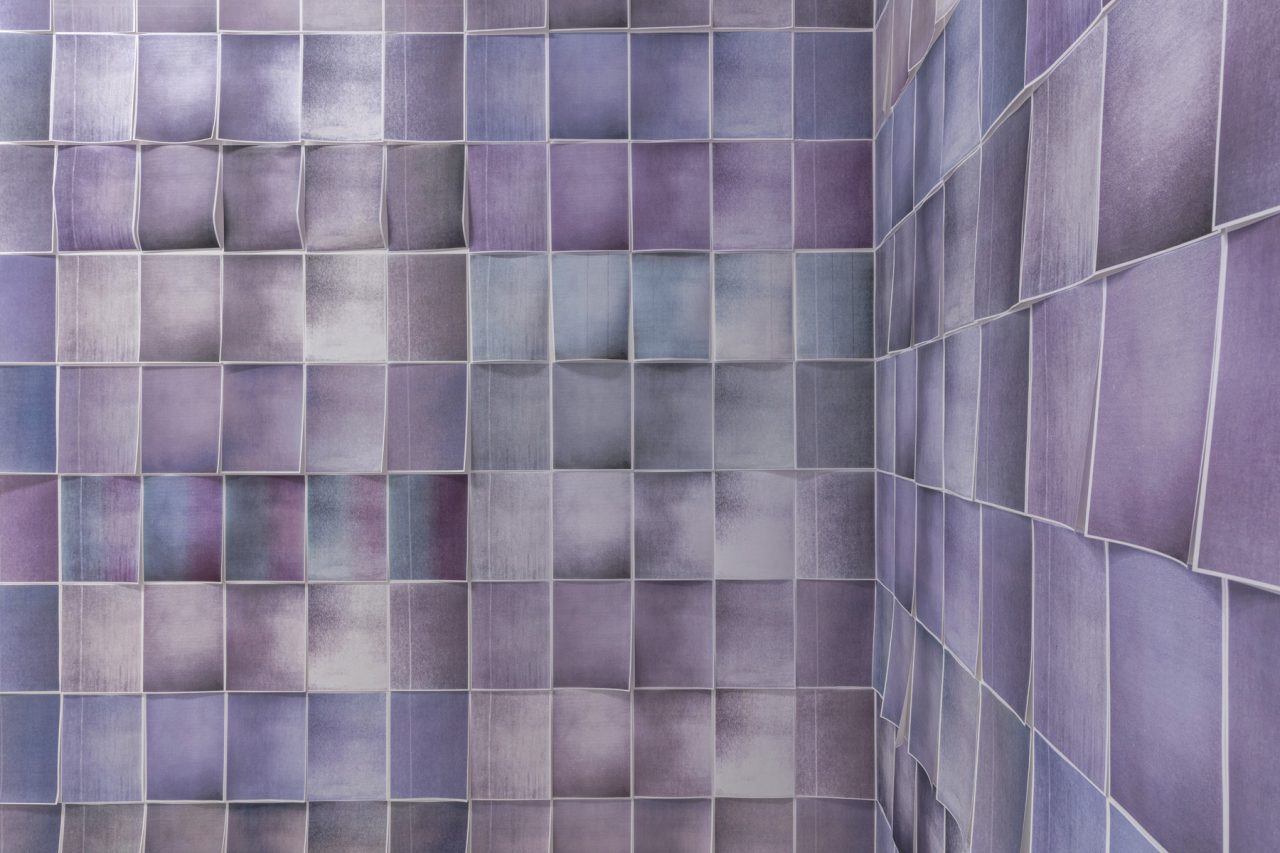
Over the course of the fall semester, artists Justine A. Chambers, Josephine Lee, Khan Lee and Kelly Lycan will present talks reflecting on their practices and early engagements in the Ars Scientia residency.
[more] -
Event
10 Sep 2021
Ars Scientia: Sensorial Walk with Holly Schmidt
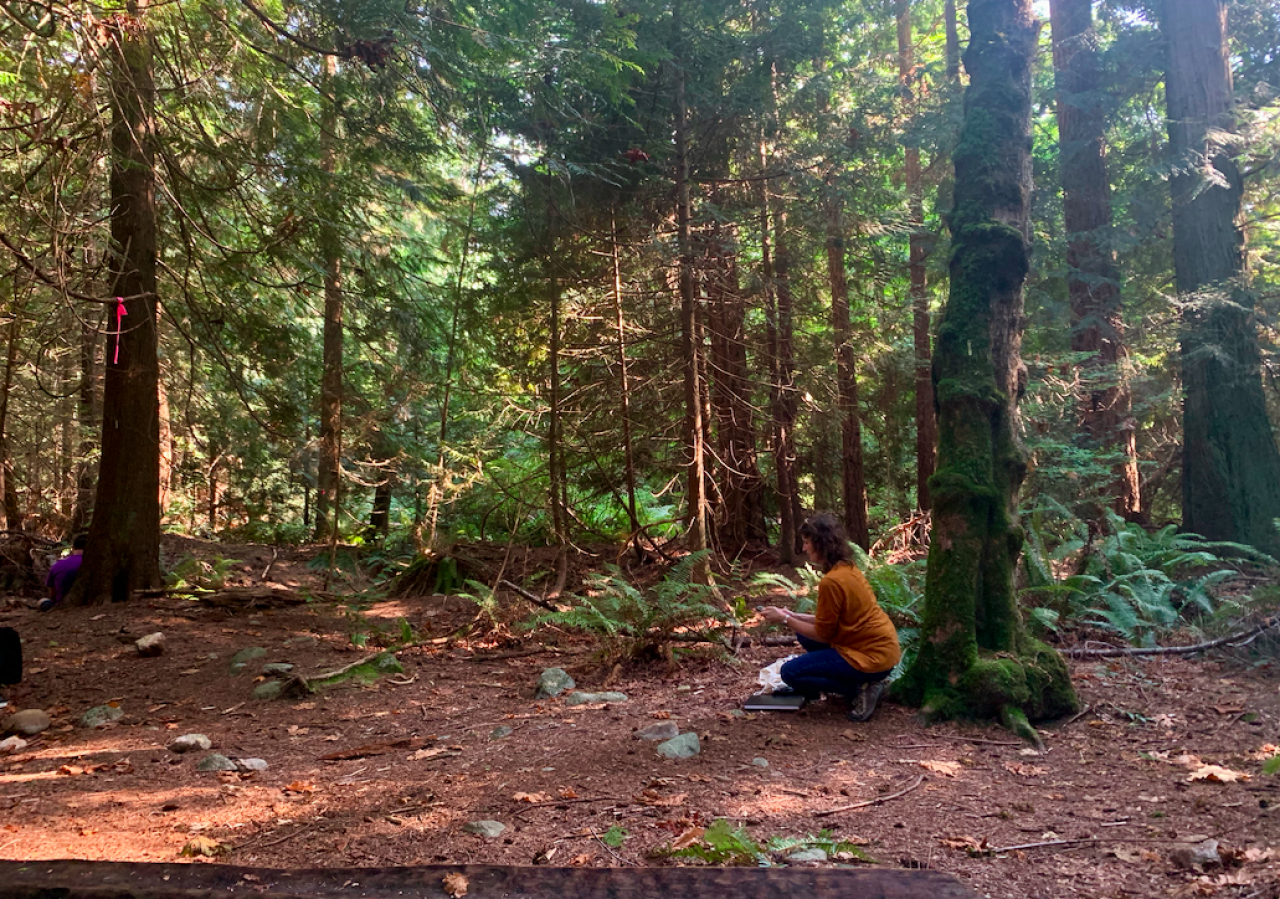
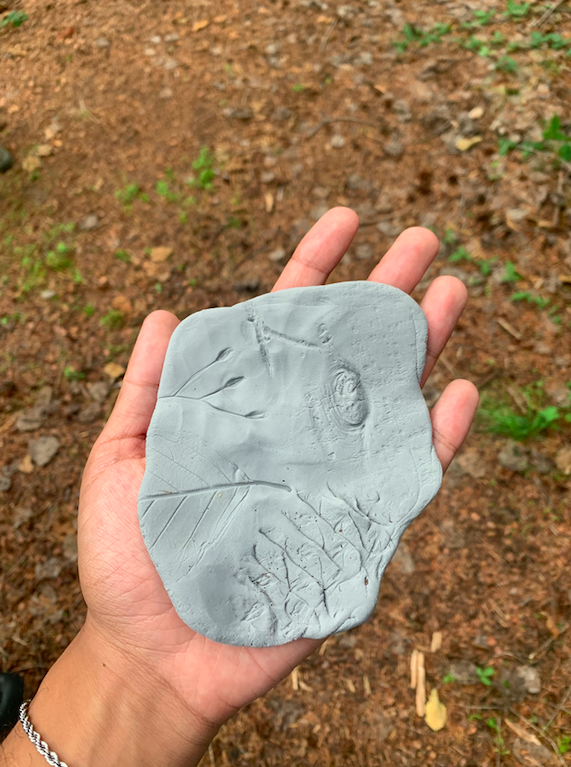
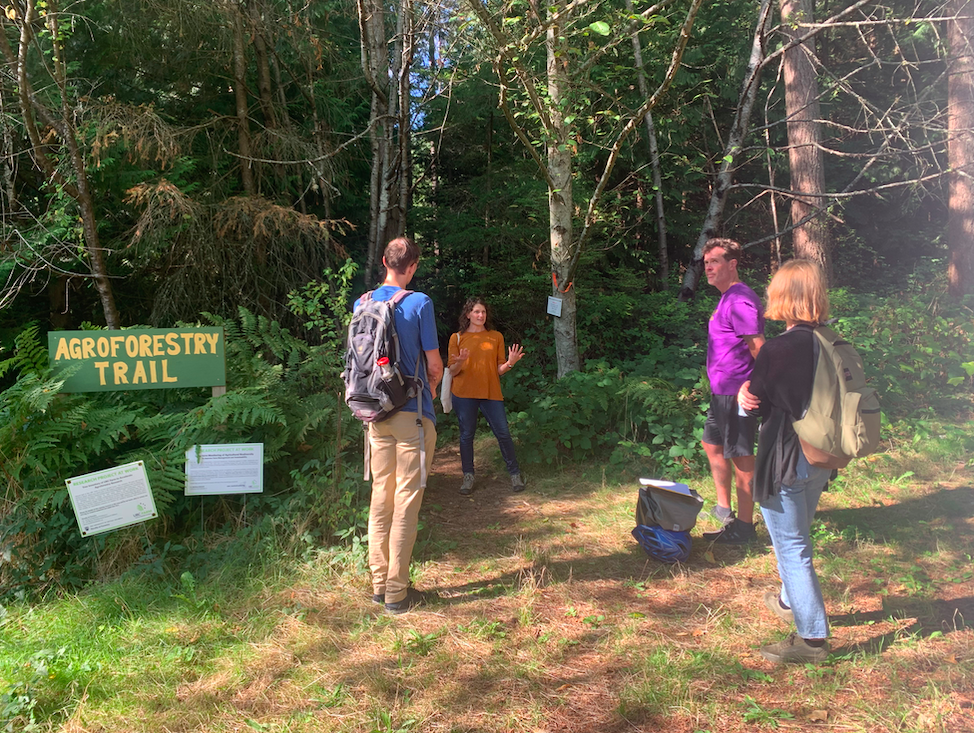

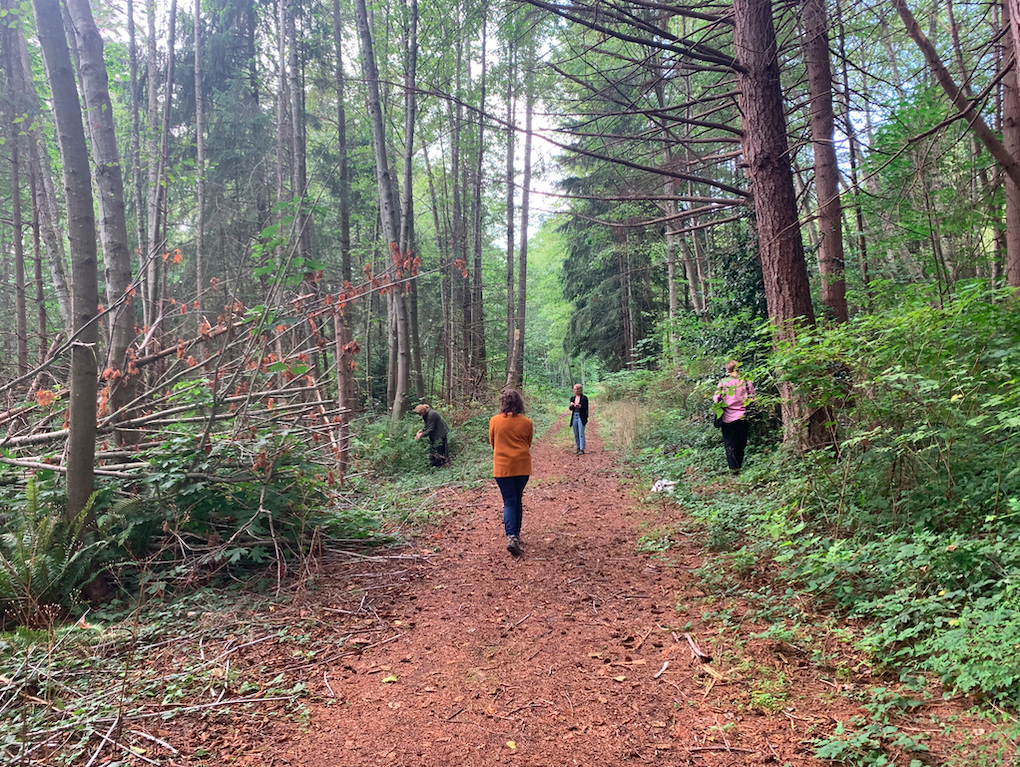 [more]
[more]
-
Research Project
2019 - Ongoing
The Score: Performing, Listening and Decolonization
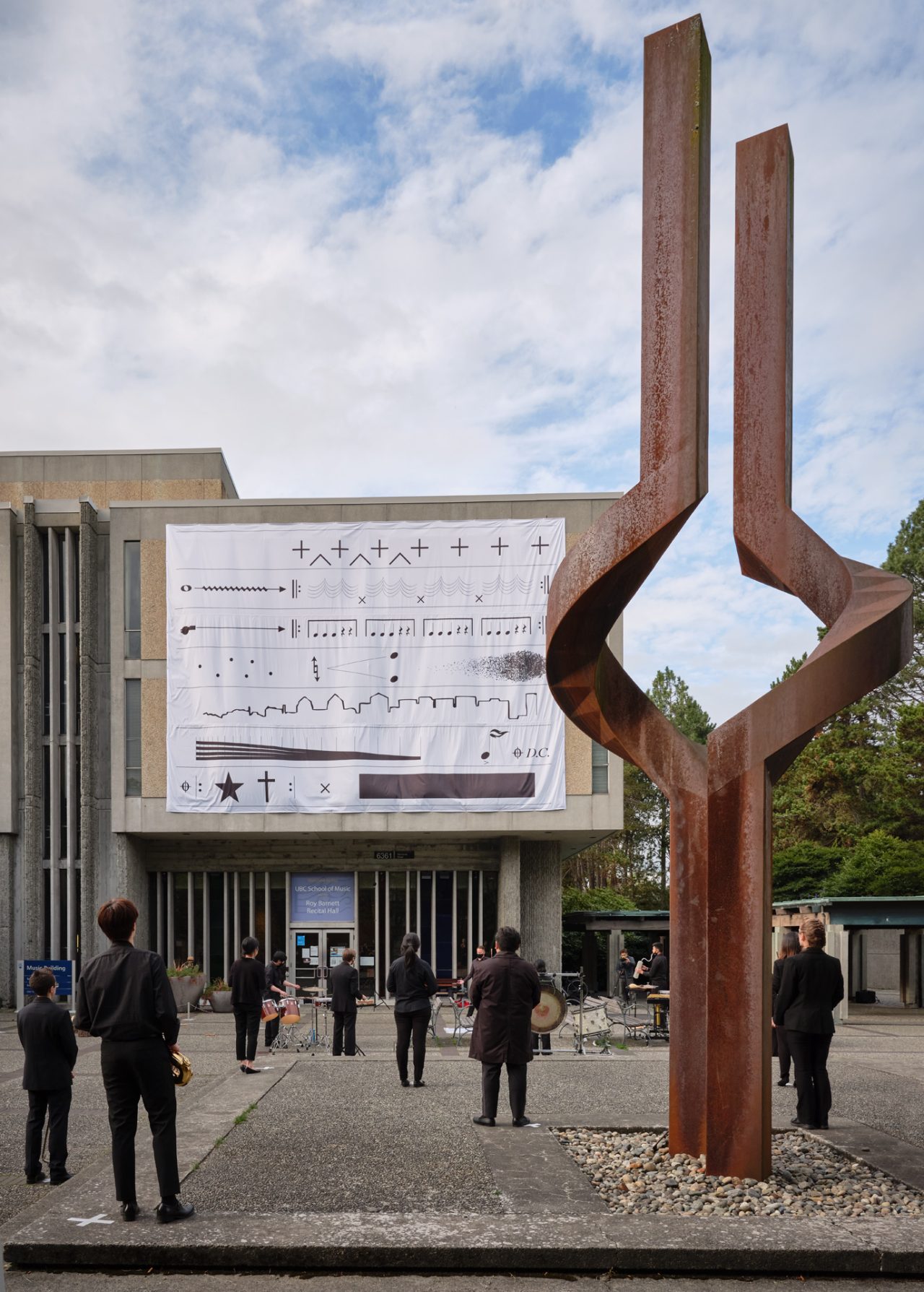
Through the performance and study of unconventional scores by Indigenous artists, the Score Research Cluster engages with decolonization by challenging existing sonic, physical and conceptual frames of Indigenous and settler–colonial knowledge.
[more] -
Event
Wednesday 24 Nov 2021 at 5 pm
Concert at the Belkin: Blank Spots Choral Performance
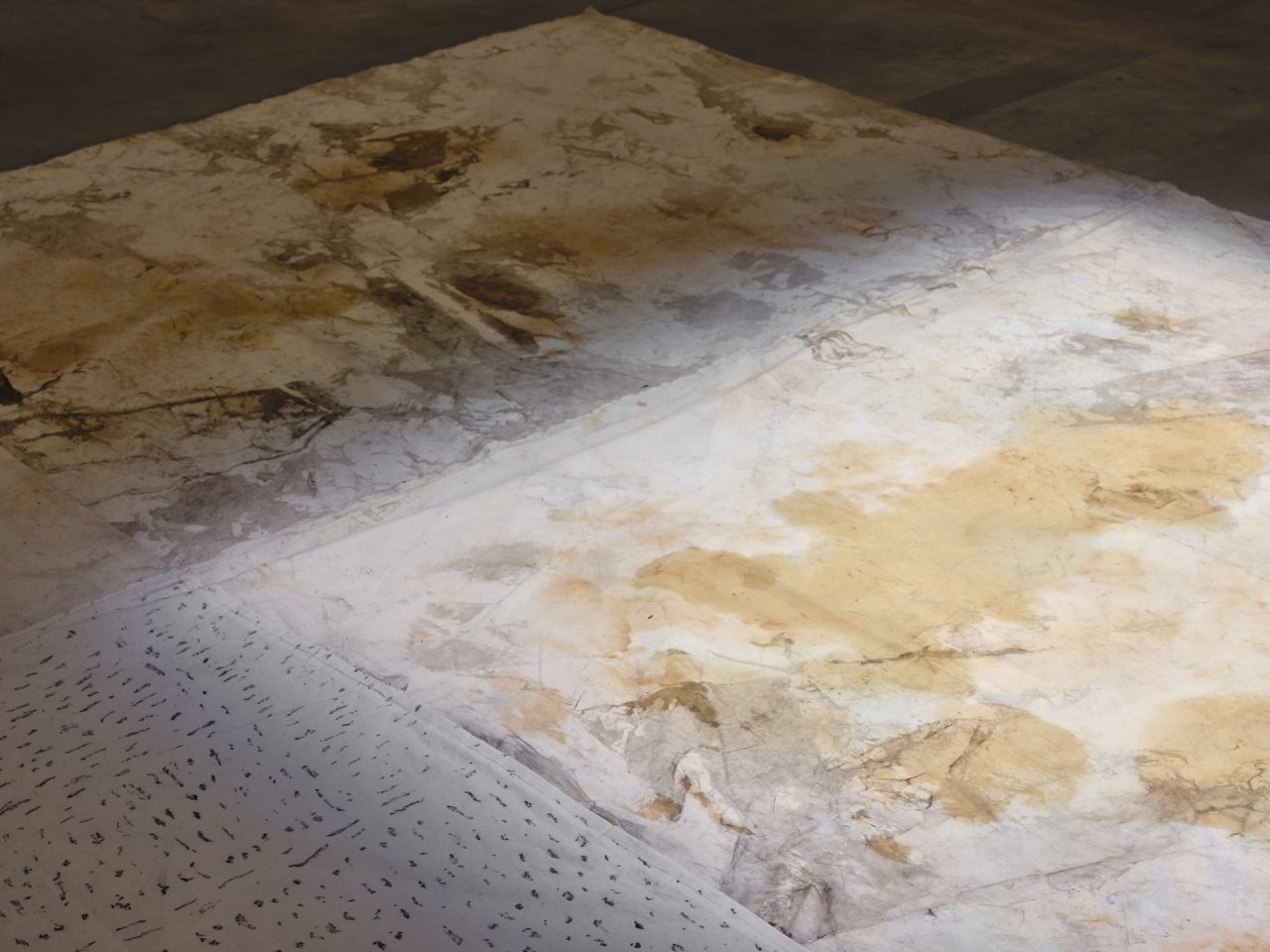
Join us at the Belkin for a concert based on artist Nadia Lichtig's Blank Spots, currently on view as part of the exhibition Drift: Art and Dark Matter. Composers Antony Knight and Walker Williams were invited by the School of Music to interpret Lichtig’s Blank Spots as a musical score. Consisting of six different sections - one for each of Lichtig’s text-based Blank Spot Notes - Knight and Williams’s score explores the themes of the text present in each note. The collaborative composition frames questions and concepts related to dark matter, such as the inability to directly observe or measure it, through various uses of rhythm and pitch. While rhythm and pitch are not strictly defined in the piece, the composition instead allows variation to arise unpredictably through individual actions of the singers themselves.
[more]